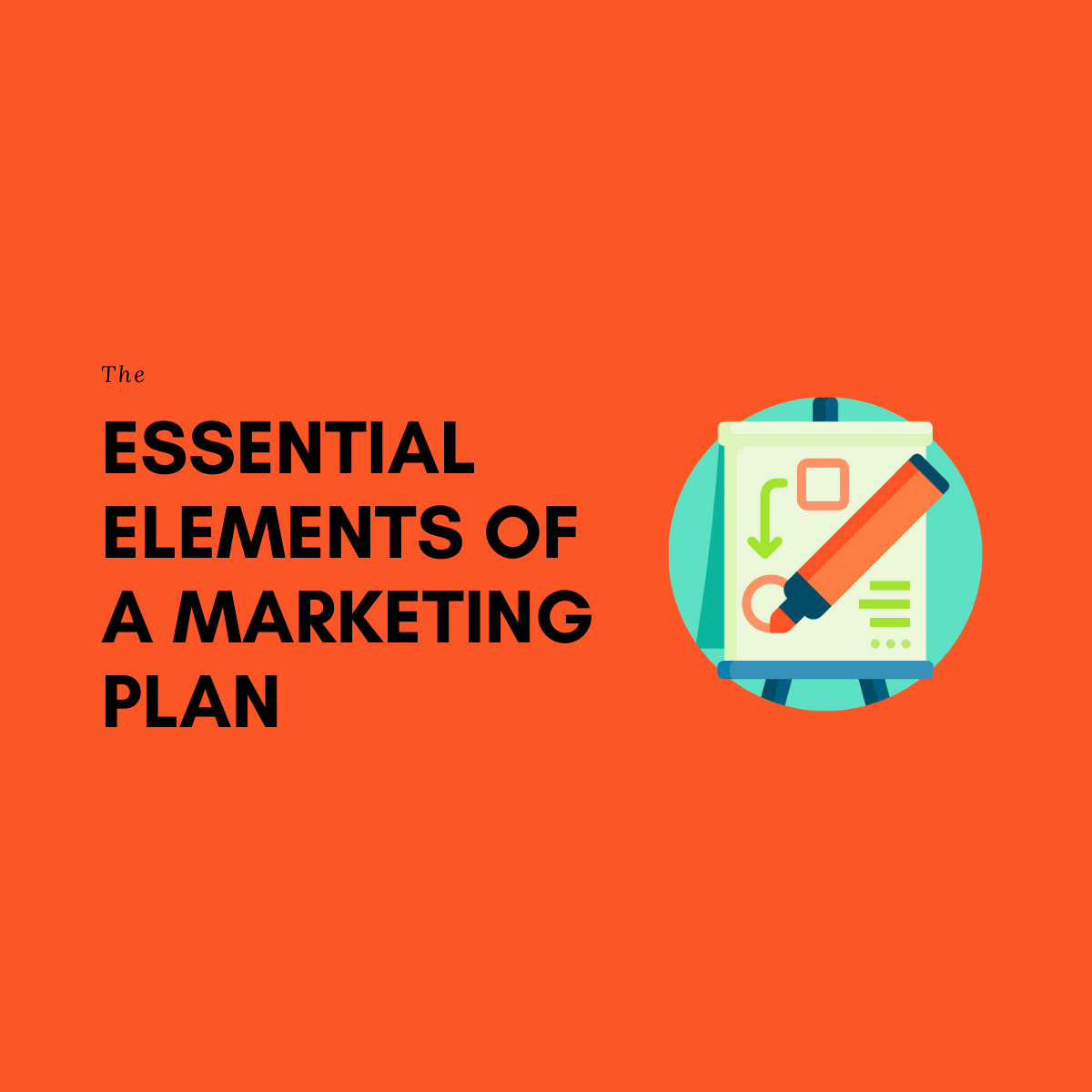Essential Elements Of A Marketing Plan For Small Business
Mohammed Ikram Nagdawala2022-01-30T19:45:55-05:00Any business that wants to be successful must have an efficient marketing plan.
According to Forbes, 14% of small businesses fail because of poor marketing. But unfortunately, despite understanding how critical marketing is to a company’s success, many small business owners do not take it seriously. A lot of small businesses are seen going about their marketing in an unorganized way, doing a little branding, advertisements, and promotions here and there without much of an understanding of the effect of their efforts. So, before understanding the key elements of a marketing plan it’s important to know why you need a marketing plan.

Why should you have a marketing plan for your small business?
If you have tried a gazillion number of marketing activities and do not know what’s working and what isn’t – that is a clear sign that you are missing a marketing plan.
A marketing plan guides you in promoting goods and services in your company that are important to your target market by ensuring that the right activity takes place at the right time through the right channel. It is thus, the missing link between the direction of your business and the delivery of results.
A marketing plan:
- Provides a focus so you don’t get carried away trying new opportunities and end up changing course frequently
- Provides an understanding of budget and manpower required, thus helping you manage your resources effectively
- Provides clarity on how much return should you expect from your marketing investment. It could be any measurable metric that can be tracked over a period of time.
- Ensure consistency of marketing activities as opposed to ad hoc activities whenever sales or leads are required.
The big problem
Most small business owners often say:
“I face challenge attracting quality traffic on website”
“I am facing a challenge to generate the return on marketing activities”
“I want to reach new customer, but cannot decide the right channel”
“My website doesn’t generate leads”
“I have a tried all marketing activities, but none of it is fruitful”
Thankfully, not all is lost yet. Yes! there is a solution to this madness.

The solution: A simple, clear, and comprehensive marketing plan
The success of a product (or even business) is often determined by the quality of marketing planning. Every company should start with a well-thought-out marketing plan focused on rigorous analysis, strategic positioning, and attainable goals. When you start writing a marketing plan, its important to focus on the main elements you want to address. Few marketing elements may be situational, but the majority are drawn from the standard marketing principles. These principles stay true for to any business, from a local shop to a multinational corporation.
Key components of a marketing plan for small businesses are:

Market research
Collect, organize, and jot down the data about the market you will be offering your product or services to. Some points to consider:
- Approximate market size for your product/service (incredibly important for local businesses)
- Market dynamics/seasonality
- Competitors offering and their marketing activities
- Current industry sales and benchmarks
- Your unique selling propositions

Target market
Finding the target market and describing them is crucial. Often when you are offering services online, you may feel there is huge opportunity out there and its easy to lose focus. Without a well-defined target market, you could end up taking shots in the dark.
One way to identify the target market is by looking at your current customer base. But if you are just starting out, you will need to do some research about who would be interested in your offerings. Few things to consider while defining your target market are:
- Age
- Gender
- Location
- Interests
- Language
- Stage of life

Goals
Establish measurable marketing goals. Your marketing goals could be increasing brand awareness, increasing the number of leads, increasing in-store traffic, winning new customers, enhancing brand image, etc. These marketing goals should be tied back to the overall business goals which could be increasing sales revenue, increasing customer satisfaction, expanding the customer base, increasing customer lifetime value and so on. Without pre-defined marketing and business goals it would be difficult to determine if you are heading in the right direction and if your efforts are paying off.

Marketing strategy & tactics
A strategy outlines how you will achieve the goals that you have already set and establishes a competitive advantage. Write down the marketing and promotion strategies that you want to work on. Strategies to consider:
- Web presence (website, landing page)
- Advertising on search engines (SEO, Google ads, Bing ads, Youtube)
- Advertising on social media (organic/ paid post on Facebook, Instagram, Tiktok, Influencer content)
- Advertising in print media (newspapers, magazines, journals, directories)
- Direct marketing (sales letters, brochures, flyers)
- Direct selling (cold calling, emails)
- Networking (attending trade shows, conferences)
- Gaining publicity (press releases)
- Content marketing (blogging, newsletters, ebooks, gamification)
- Other unconventional methods (product demos, flash mobs)
Strategy execution is the most expensive phase in the marketing planning process, and it often involves significant human resources.

Budget
This is the most important element of your marketing plan. It defines what strategies can you afford. It also helps you deciding on your priorities and lets you handle your resources accordingly, instead of spending when it seems a good idea. The scale of your marketing efforts is also dictated by the budget you have available to spend on various campaigns.
One way to budget your dollars is to look at what’s worked for you in the past and possibly expand on that.

Summing it up
To write a successful marketing plan for your small business, it’s important to set clear, realistic and measurable targets. It is also crucial to include deadlines for meeting targets and provide a budget for each marketing activity.
A well-structured plan is necessary to the marketing success but be also prepared to improve or redirect your plan based on what proves effective.
Are you a startup or a small business owner struggling to document your marketing plan? I can help you prepare a step-by-step actionable marketing strategy plan for your business. Message me to learn more.

Leave a Reply